
On Saturday, during a hike with my family, I found out that @realDonaldTrump had tweeted my work. “Making sure you saw this,” @SallyShin wrote me. Wow! Was it something about climate change? My reporting on the pandemic? Systemic bias? Nope, it was this:
So that was the end of my weekend, and I spent Sunday going back to the event’s founders and to outside experts to ask: does what I’d seen at the event — people easily breaking into common voting machines purchased off eBay — mean the president’s insinuation was accurate?
Here’s what they told me: The most secure form of voting is one involves paper, and in 2016 several states, including Georgia and Pennsylvania, were still mostly using vulnerable digital systems. (Source: @VerifiedVoting) 
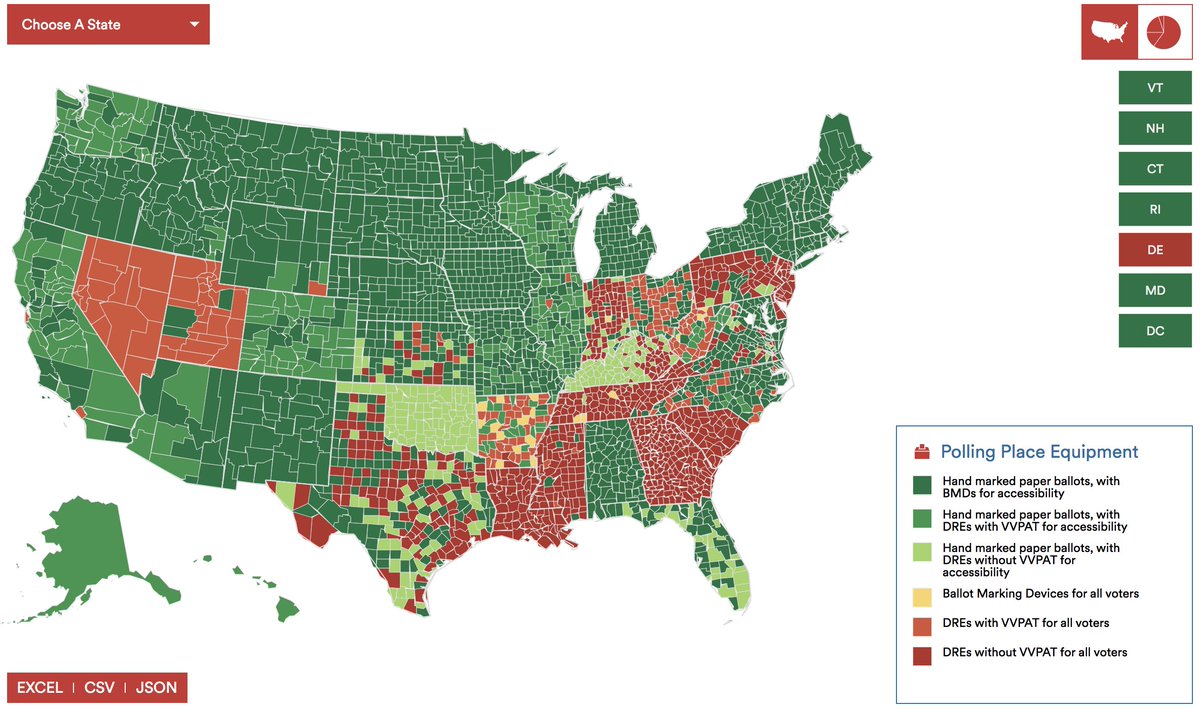
In 2020, millions of people in those states and elsewhere voted by mail or otherwise used new systems that do produce a paper trail. In fact, this year 69% of Pennsylvania polling places offered a hand-marked paper ballot, the most secure system we have right now. 
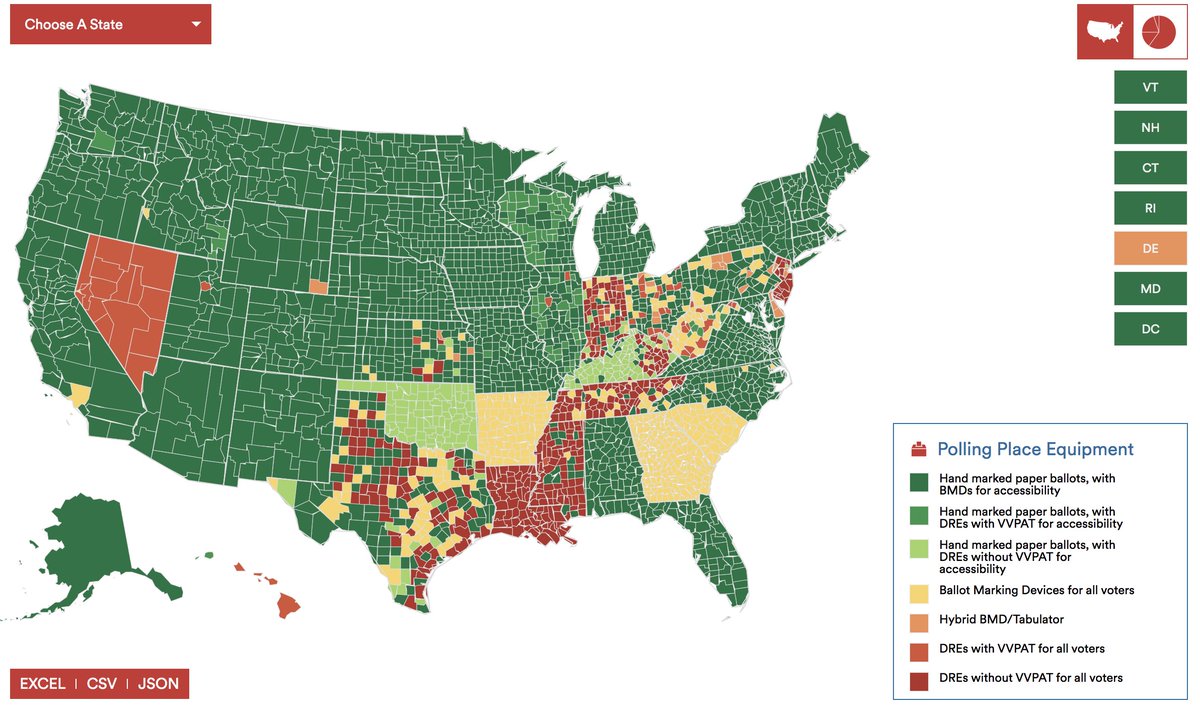
It’s worth noting that Louisiana, Mississippi, and Tennessee, where the president won, still mostly use all-digital systems. Nevada, in orange, uses a digital system with a Voter Verifiable Paper Audit Trail (VVPAT). 
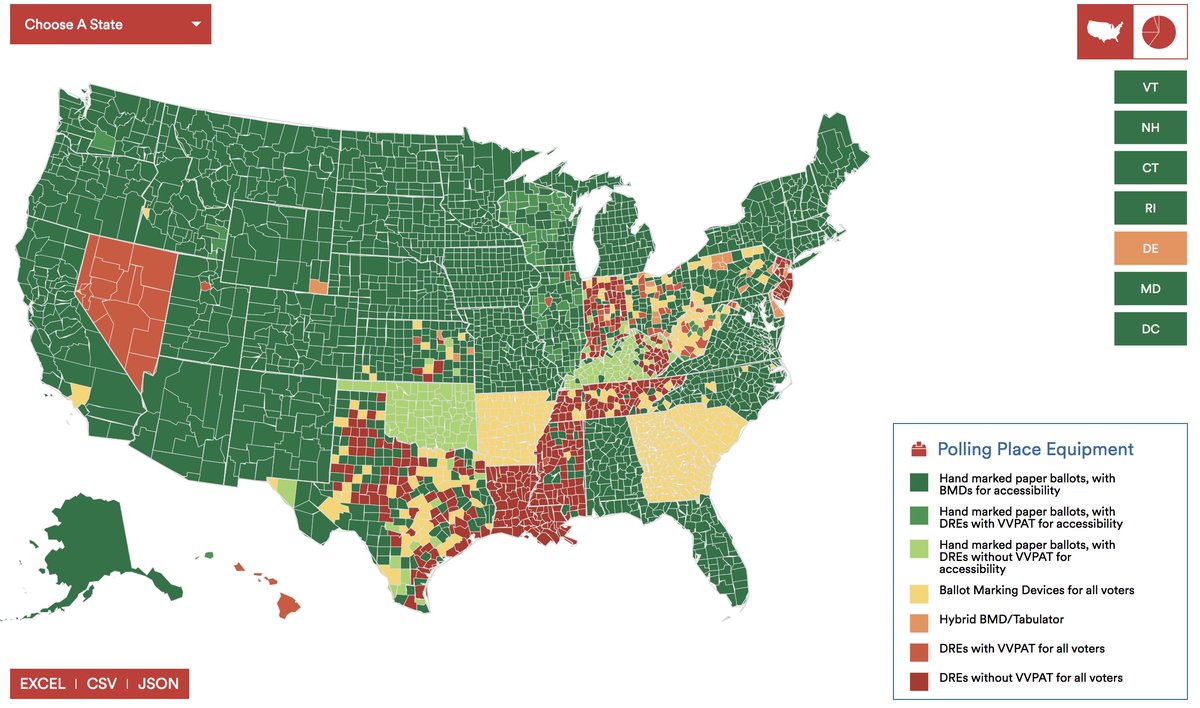
(@VerifiedVoting has a wonderful tool that allows you to look up all kinds of information since the 2000 election, including method, make and model, the states that have changed over time, etc.)
verifiedvoting.org/verifier/#mode…
verifiedvoting.org/verifier/#mode…
(It also shows that Dominion machines, which the president has been vilifying, are the dominant voting equipment in several states he won in 2016 and 2020.)
verifiedvoting.org/verifier/#mode…
verifiedvoting.org/verifier/#mode…
The switch to paper ballots is what makes it possible, for instance, for Georgia’s secretary of state to ask for a hand-count of the results. It’s the way we detect fraud if there is any: the post-election hand-count wouldn’t match the machine count. nbcnews.com/politics/2020-…
(The audit, which likely wouldn’t have been possible in 2016 when Georgia was using different systems, has turned up 2,600 new votes, about 800 of which will go to Trump, a county Republican chairman tells @AJC.) ajc.com/politics/georg…
All of that said, the threats we saw in Vegas are very real. The DEFCON @VotingVillageDC team issued a startling report afterward. media.defcon.org/DEF%20CON%2027…
They wrote that hackers were able to load “pong” onto one machine. Admin passwords were set to things like “1234.” Ballpoint pens popped open the back of a machine used in 18 states during 2016’s election. media.defcon.org/DEF%20CON%2027…
In fact, in Vegas we spoke with Senator @RonWyden, who showed up while crafting voting-security legislation. “I sure wish Mitch McConnell was here to see this who’s-who of hackable voting systems," he said. "I think something like this would be a wake up call for any legislator.” 
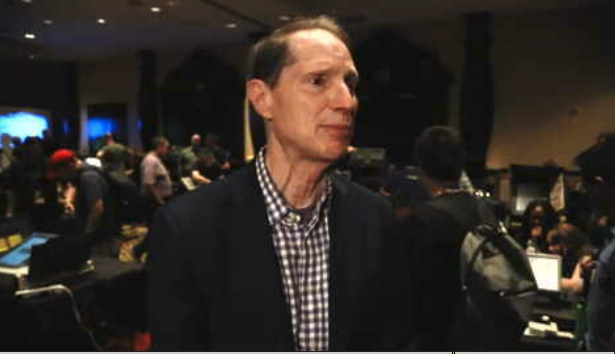
@RonWyden’s proposed SAFE act would have mandated paper ballots and risk-limiting audits in every state, which all the experts told me would be the best way to avoid a hacked election. But Senate Republicans wouldn't even discuss it, as @maddow reported. msnbc.com/rachel-maddow-…
All of this is to say that the experts I spoke with were horrified that @realdonaldtrump ignored their concerns for four years, and is now trotting them out for political reasons. For me, it was a good excuse to revisit those concerns and see where they’ve shaken out. 
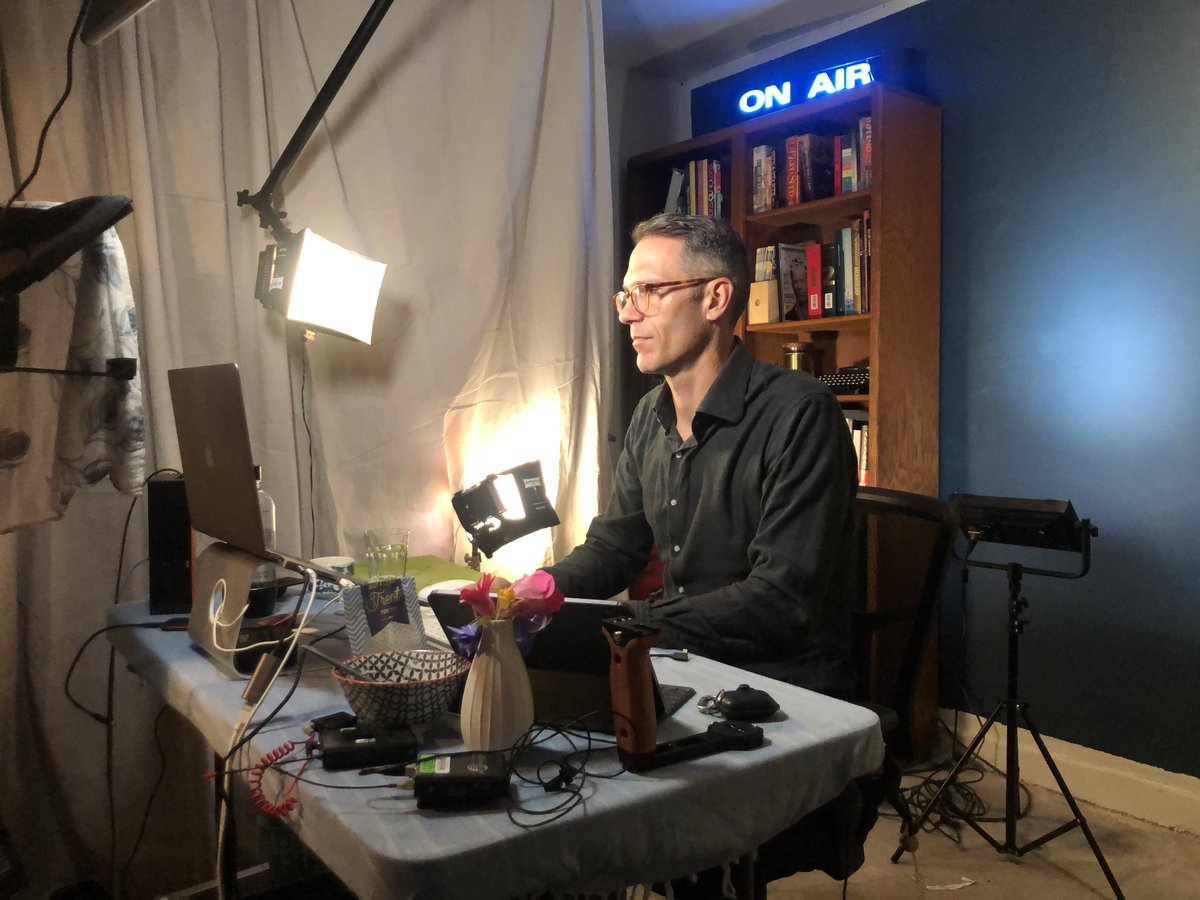
@realdonaldtrump tweeted our story again this morning. Here’s the piece we aired today, analyzing the threat, and the president’s use of our reporting, and whether the two match up.
Real threats remain at the technology level. Paper ballots and risk-limiting audits are the best protection we have against them right now. And yet the Trump administration took no interest in any of this until the president lost his bid for re-election.
https://twitter.com/nbcnewsnow/status/1328468213441695745?s=21
With the exception of a single user error in Antrim County, Michigan — one that was caught and corrected — no outside experts or lawyers have found evidence that anything like what I saw in Vegas took place this month. michigan.gov/documents/sos/…
And if you’re still here, perhaps you’d be interested in a few stories I wish the president had put on Twitter instead. Here’s one I did with @CASottile about how our phones betray us.
https://twitter.com/NBCNightlyNews/status/1193694831891009536?s=20
Here is the fiery anger my city, Oakland, felt after George Floyd’s murder.
msnbc.com/msnbc/watch/oa…
msnbc.com/msnbc/watch/oa…
Here are the threats public health officials and health care workers have faced in an atmosphere of misinformation as they try to keep us alive during the pandemic.
https://twitter.com/CASottile/status/1278406720402763778?s=20
Here’s just how much we give away when we post our faces online, and whether the pandemic changes that ethical calculus.
nbcnews.com/nightly-news/v…
nbcnews.com/nightly-news/v…
Here’s my trip with @bitaryan to see climate change firsthand through the eyes of one Oregon family. They built a dream home and planted trees for their children when each one was born. It all burned in unprecedented fires this year.
https://twitter.com/NicolleDWallace/status/1304568156963450880?s=20
Here’s how racism has created two Americas when it comes to housing in this country.
https://twitter.com/byjacobward/status/1290777089969238017?s=20
I did a whole PBS series about confirmation bias, systemic racism, and all the other ways our brains cause us to see things (like reports about voter hacking) in the way that suits our preconceptions. It premiered the same night as the #SocialDilemma. pbs.org/show/hacking-y…
And I have a book coming out next year about the long-term effects of technology on our brains. Here's a preview!
https://twitter.com/longnow/status/1325940488239788032?s=20
Thank you to @eddieperezTX and @VotingVillageDC cofounder Jake Braun for their insights, and to the hundreds of hackers we met while we were in Vegas. They volunteered for the chance to test the machines we depend on to vote, and their work helped make this year's vote safer.
And thank you, as always, for reading and watching and being able to hold multiple ideas in your head.
@defcon, which hosts the event, has lots more to share.
https://twitter.com/defcon/status/1327772686269878272
Update: Georgia's secretary of state was asked about the integrity of the state's vote by NPR's @arishapiro. He responded "Was it hacked? Was it tampered with? It's not been. We have a forensic audit on that." 

• • •
Missing some Tweet in this thread? You can try to
force a refresh



